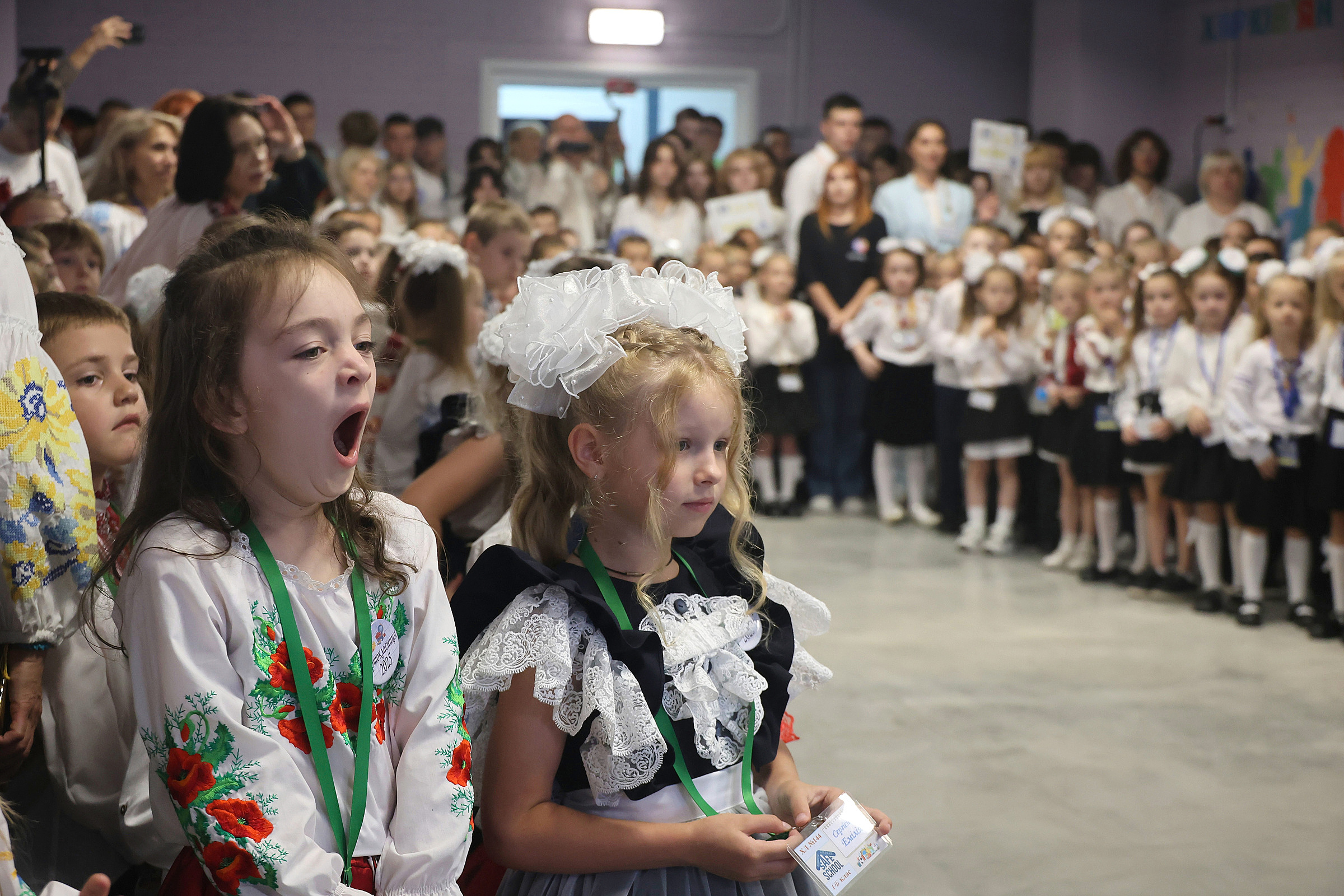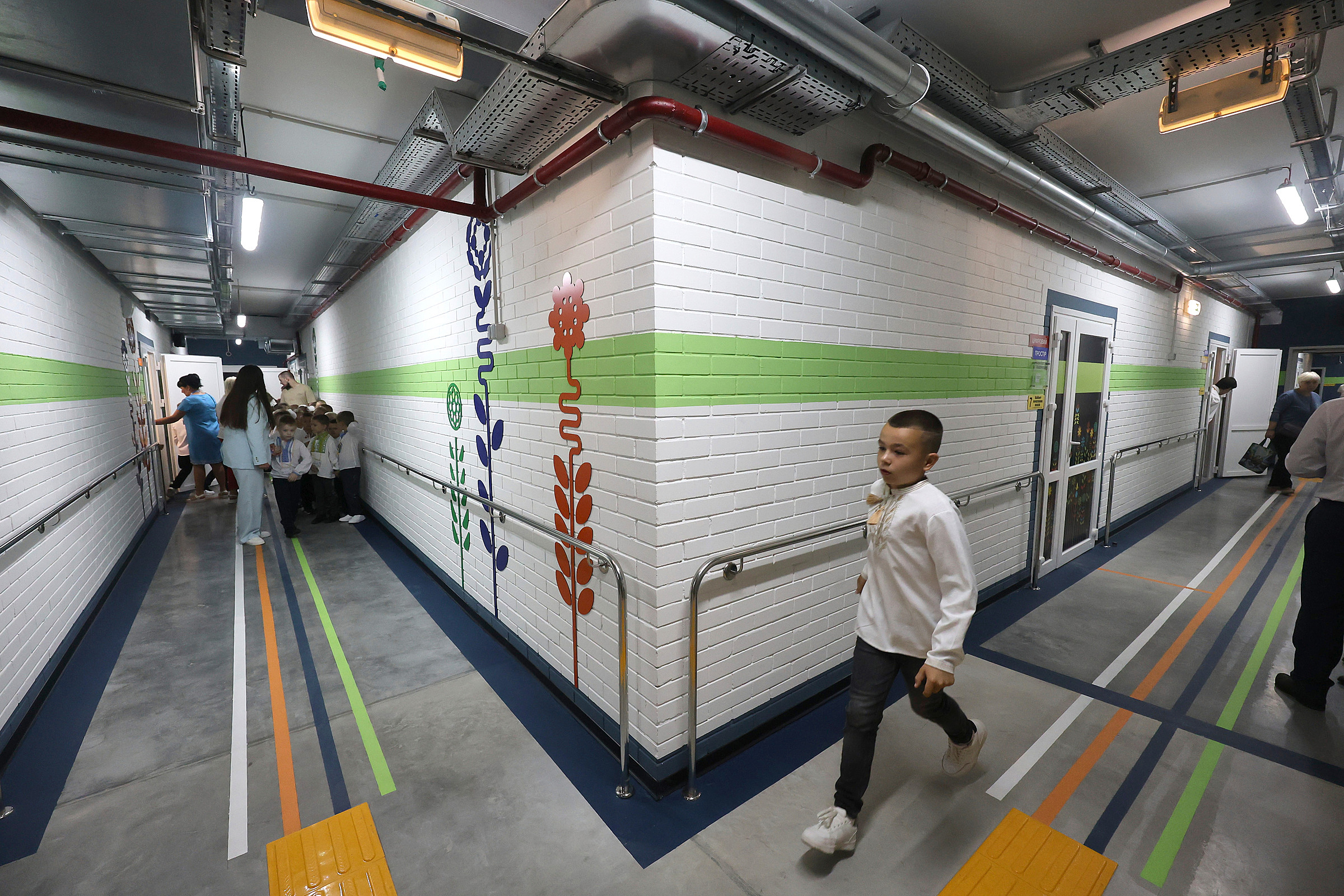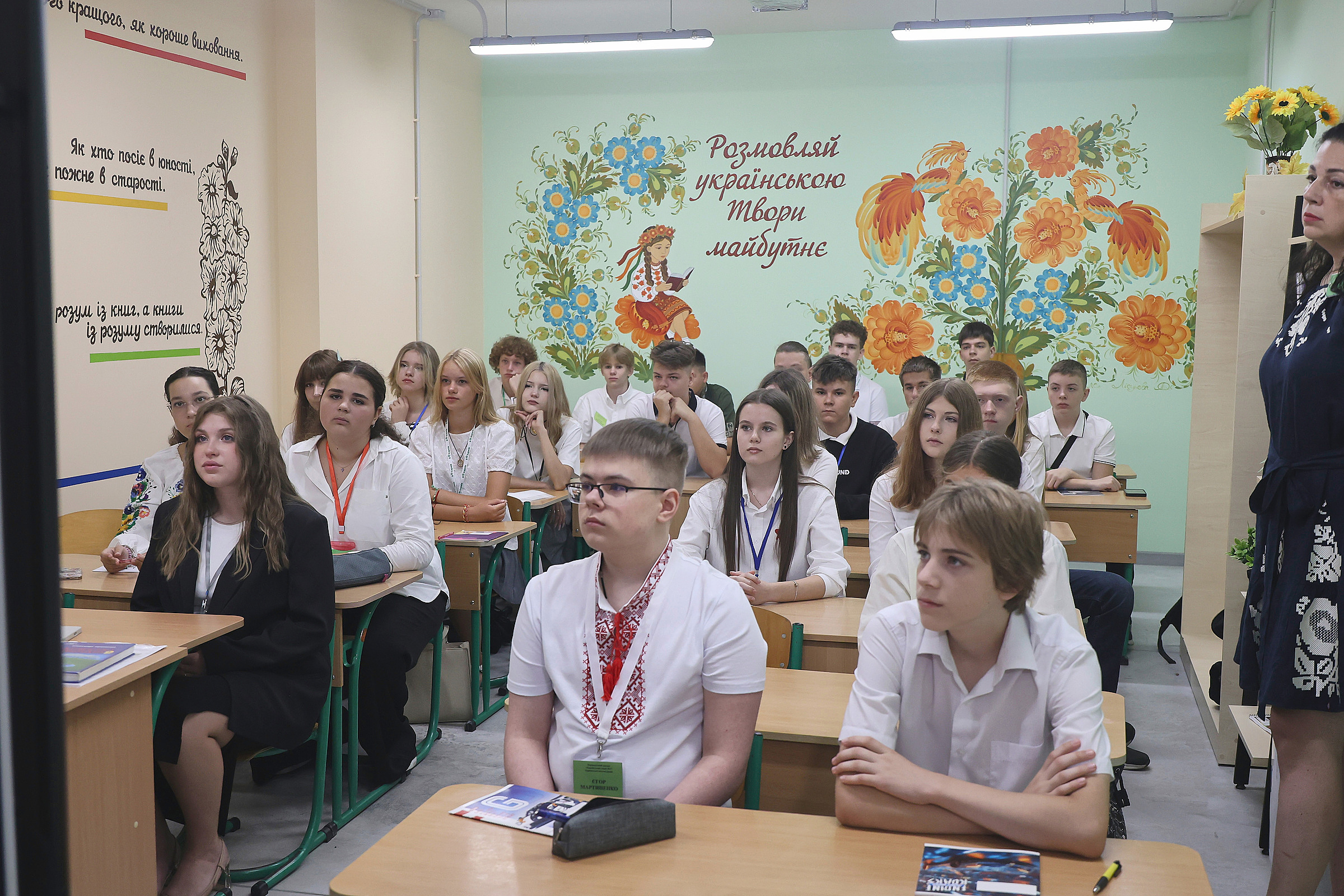Around 17,000 students in Kharkov began the new school year on 1/9 in seven underground schools. Kharkov, Ukraine's second-largest city, plans to open more similar schools soon to cope with frequent Russian attacks.
"Today, my child went to school for the first time, to the first grade, at the nearest underground school in North Saltivka," said Anastasia Pochergina, referring to the city's suburb, which has been repeatedly targeted by Russian missiles and UAVs.
 |
Ukrainian students at the opening ceremony at an underground school in Kharkov, Ukraine, on 1/9. Photo: Reuters |
Ukrainian students at the opening ceremony at an underground school in Kharkov, Ukraine, on 1/9. Photo: Reuters
"The school is located at a depth equivalent to three floors, said to be the deepest in Kharkov, so I believe it's safe. Although I really wanted my child to go to a regular school, I didn't think it would be possible this year," Pochergina added.
"This is one of the schools closest to the border with Russia. Today we also opened two more schools in the Nova Salivka district, similar to this one," Kharkov Mayor Ihor Terekhov stated. "The depth is really important. The school is very large, with 1,500 students here."
 |
Inside one of the underground schools in Kharkov, Ukraine, on the first day of school, 1/9. Photo: Reuters |
Inside one of the underground schools in Kharkov, Ukraine, on the first day of school, 1/9. Photo: Reuters
Inside, parents prepared flowers and gifts for the teachers. The teachers urged students to quickly enter their classrooms, and the children held hands as they walked along the underground stairs. The classrooms are well-equipped.
Terekhov said the city will open three more underground schools next year. Officials will also convert six subway stations into classrooms so that students can attend school normally.
 |
A classroom in an underground school in Kharkov, Ukraine, on 1/9. Photo: Reuters |
A classroom in an underground school in Kharkov, Ukraine, on 1/9. Photo: Reuters
However, parent Pochergina isn't optimistic about the possibility of achieving peace soon. "We expect things to get better, but we don't expect complete peace. We understand the situation and have no illusions about the future."
6-year-old Maria Yampolska said she was happy on her first day of school. When asked how first grade compared to kindergarten, she said: "I've never been to kindergarten because of the war."
Duc Trung (Reuters)












